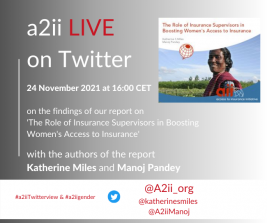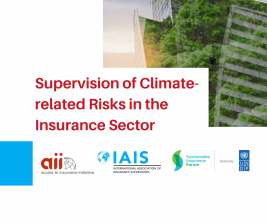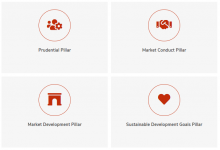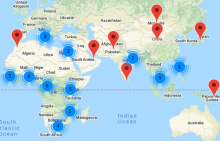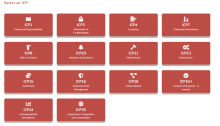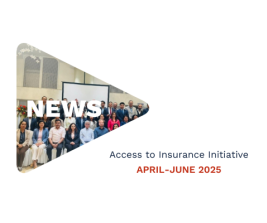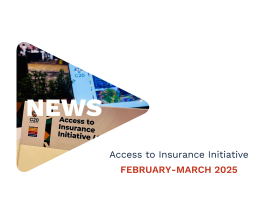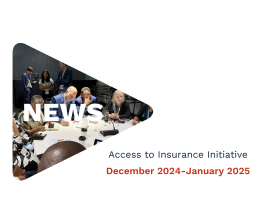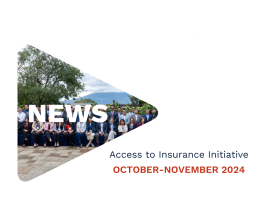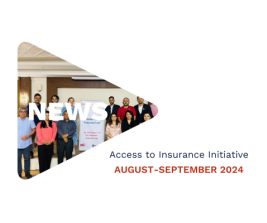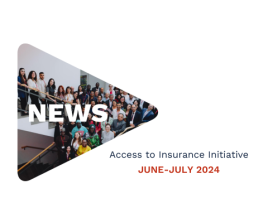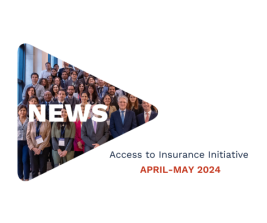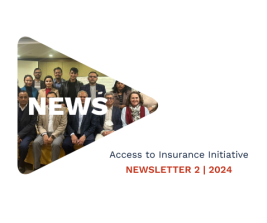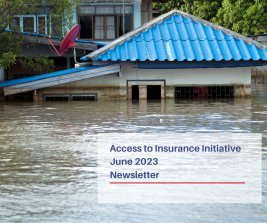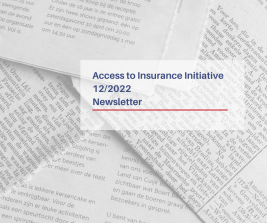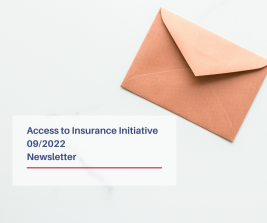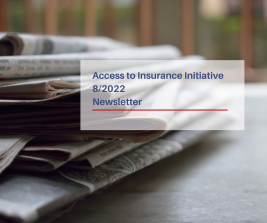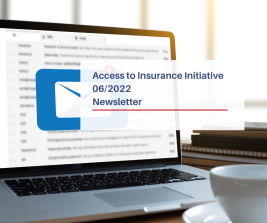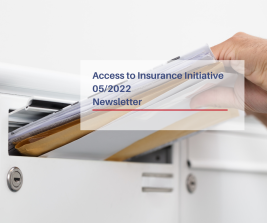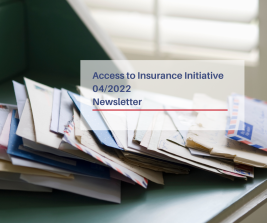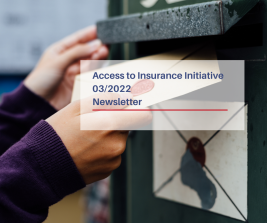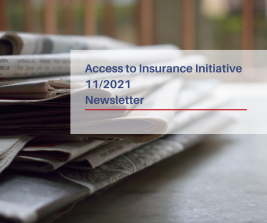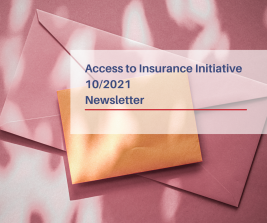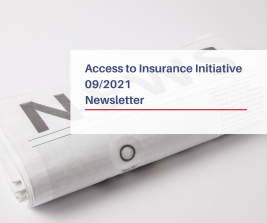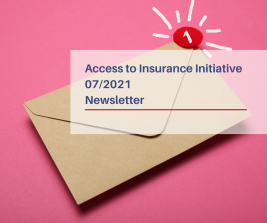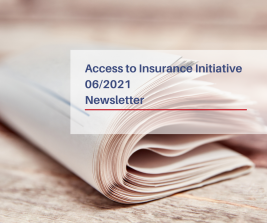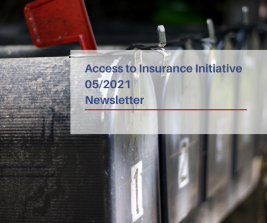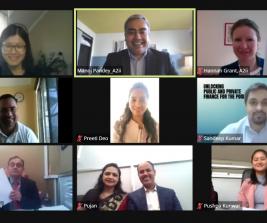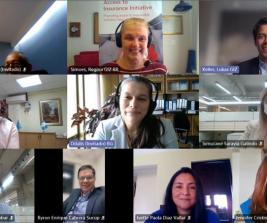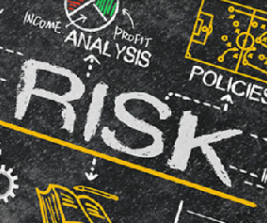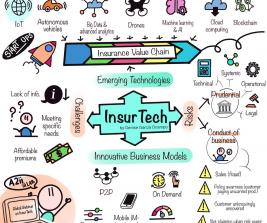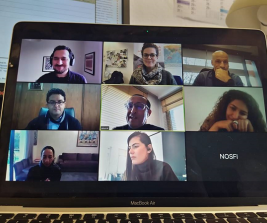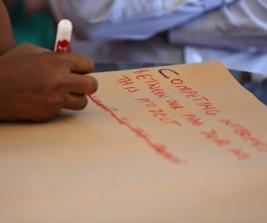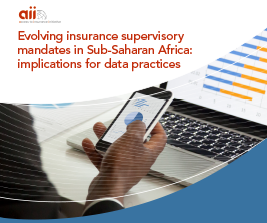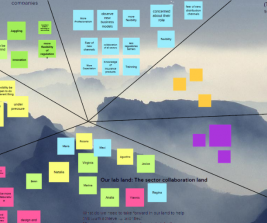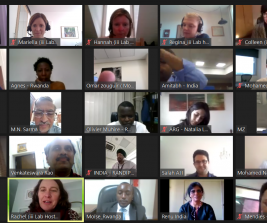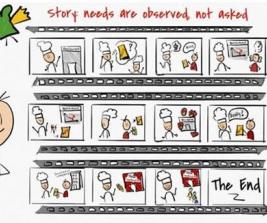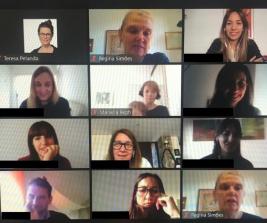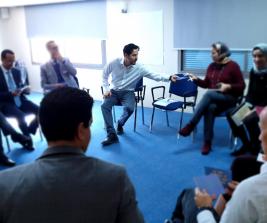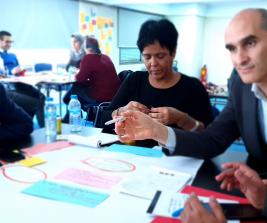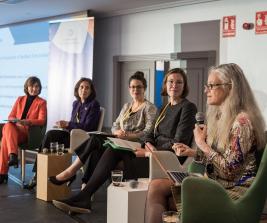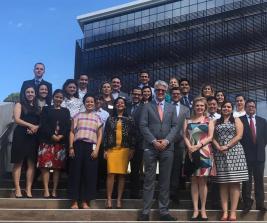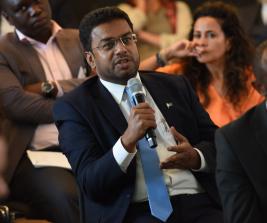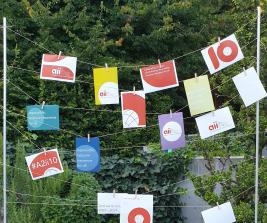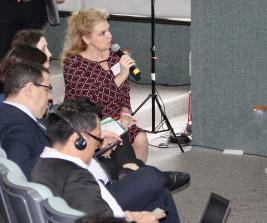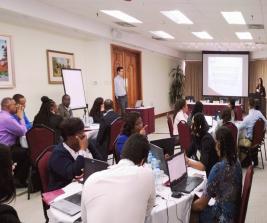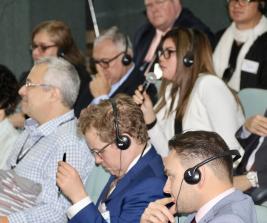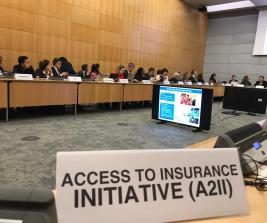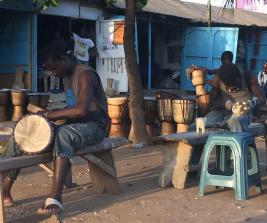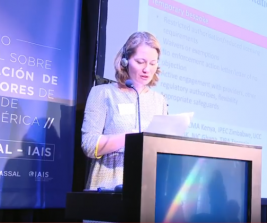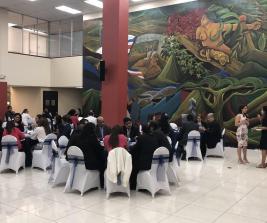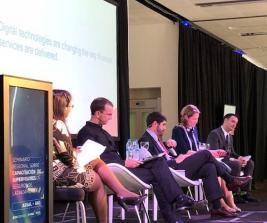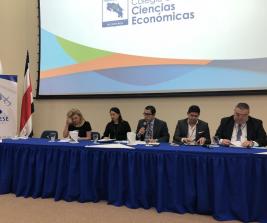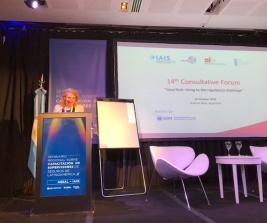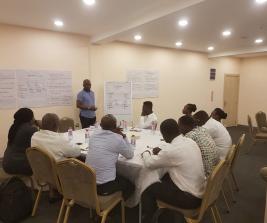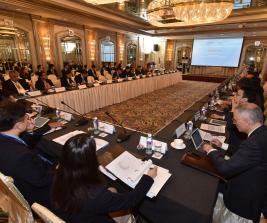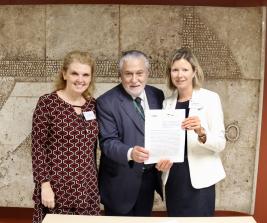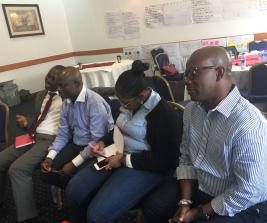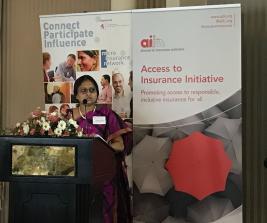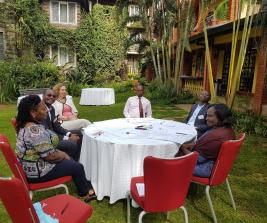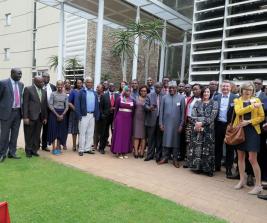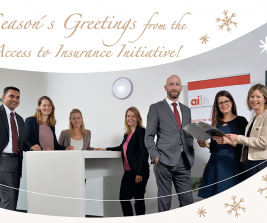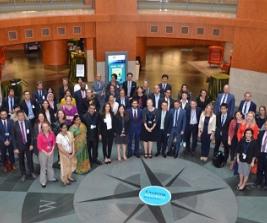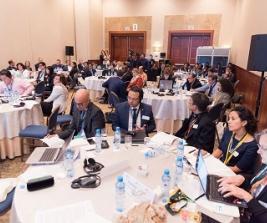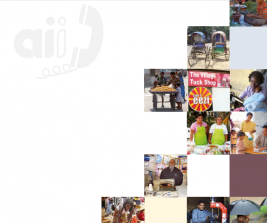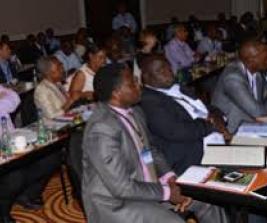A2ii Newsletter 12/21
Welcome! In this newsletter, we provide you with updates on the work of the A2ii, events and publications, and experiences and learning on inclusive insurance regulation and supervision across jurisdictions over the past month.
Follow us on Twitter @a2ii_org and LinkedIn and join the conversation on #inclusiveinsurance!
Subscribe to our mailing list to receive our newsletter in your inbox.
Navigation
iii-lab updates | Recent Events | Upcoming Events | Useful Tools on Our Website
iii-lab updates
Second A2ii Inclusive Insurance Innovation Lab (iii-lab) closes | 11 November
The 11 November marked the official closing of the second A2ii Inclusive Insurance Innovation Lab - and we could not be prouder to report the results these teams achieved!
Video report
We have released a special video, where you can hear about the lab in the words of the lab members!
Click above to watch the video.
A 20-month journey
From March 2020 to November 2021 four multistakeholder country teams from Argentina, India, Morocco, and Rwanda worked diligently on developing innovative solutions to advance inclusive insurance in their countries. Due to the pandemic what was initially planned as 15 in-person meetings, turned into an almost entirely online interaction among the participants using videoconferencing platforms and online whiteboards.
As teams acknowledged the continued need for innovations in the inclusive insurance space, they put in considerable commitment and overcame challenges such as connectivity issues, conducting virtual learning journeys, increased care work needed at home and Coronavirus infections within the teams. Lasting relationships between key stakeholders from the public and private sector were established and a total of eight prototypes developed.
Four country teams developed eight prototypes - watch the video for details.
Argentina is launching a social media campaign #mejorconseguros to raise awareness about the importance of insurance for low-income women. The team is also working on developing a freemium business model.
India has experimented with caller tunes to raise awareness and is working on a combi-product to offer better products and services to the low-income segment.
Morocco has designed a digital interface using WhatsApp where clients can access a simple health insurance product, i.e. hospital cash, through chat and pay using loyalty points.
Rwanda developed several insurance awareness programmes: an annual insurance week, radio and TV shows and university competitions.
If you wish to learn more about the second iii-lab’s results, watch out for our Public Dialogue taking place early 2022 (tbd.). We extend thanks to the lab teams for their dedication, commitment and their trust in our process in a disrupted pandemic time.
We also thank our implementation partner Reos Partners and our funders DGIS and BMZ.
Third iii-lab focused on climate kicks off | October-November
The A2ii iii-lab is currently continuing in its third edition with a focus on climate. Country teams from Costa Rica, Grenada, Zambia and Zimbabwe started the programme in October 2021. The members of the country teams include the insurance supervisor, policymakers, industry associations, insurers, brokers, service providers, farmers’ associations, NGOs and development partners.
At the beginning of the 12-month process, it is essential to understand the current reality of climate risk for vulnerable groups in each country. In October and November, the teams put their heads together (virtually) to analyse why so many people in their country remain largely unprotected against climate risk. Starting at the end of November, participants met in international workshops to forge networks across teams and learn about the context in other jurisdictions.
Two main challenges were identified within the country teams. First, vulnerable groups are usually unaware of climate risk finance and alternative means of addressing climate risk. Second, suitable insurance products are often missing, either because insurers do not have the necessary skills and knowledge to develop such products or because they lack data about climate risk for different target groups. When it comes to selecting the beneficiaries for whom teams will develop their innovations, the following have been chosen: smallholder farmers, fishing folk and small and medium sized enterprises (SMEs) in the tourism sector.
As one participant stated, “we still need to learn and understand… and so many things we found we have in common.”
In December and January, teams will continue their learning journeys by interviewing people from the beneficiaries identified, in order to learn more about their lives and how they deal with climate risks. With this input in mind, the teams will be ready to start innovating during the first quarter of 2022.
Recent events
A2ii-IAIS Public Dialogue on Pandemic Risk: Opportunities to improve insurability | 25 November
In the final Dialogue of 2021, the A2ii and IAIS organised a webinar on ‘Pandemic Risk – Opportunities to Improve Insurability’. The dialogue was moderated by Alistair Gough, executive coordinator at the IAIS and lead on IAIS’s work on pandemic risk protection gaps. The dialogue started off with a brief presentation that highlighted global proposals and initiatives to address pandemic risk in various jurisdictions. What followed was a panel discussion with Hannah Grant, Head of A2ii Secretariat, Leigh Wolfrom, Policy Analyst at OECD’s Directorate for Financial and Enterprise Affairs, Gunther Kraut, Global Head of Epidemic Risk Solutions at Munich Re and Suresh Mathur, Executive Director at IRDAI.
Hannah Grant pointed out that there is a growing consensus that pandemic outbreaks will become more frequent and potentially more severe. Beyond business interruption, the pandemic has also exposed the extent of the global protection gap as a whole, which if left unaddressed, will continue to grow and contribute to global disparities.
Leigh Wolfrom highlighted the significant gap between the amount of economic losses that result from catastrophe-related events and the share of those losses that are insured. Research done by the OECD revealed that for natural catastrophe perils, about 55%-60% of economic losses since 1990 were uninsured - and there were particularly high levels of uninsured losses from floods and earthquakes. Although current data for Covid-19 is subject to an ongoing debate about the applicability of insurance coverage, it is estimated that 99% of the revenue losses that businesses faced as a result of lockdowns and changing economic behaviours were uninsured.
Gunther Kraut highlighted the difference between pandemic and epidemic and different approaches to providing cover against such risks. There is an increasing trend of the frequency and severity of epidemic risks, and there are parameters in place that determine the difference between epidemics and pandemics.
Public-private approaches are key to ensure cover of these risks beyond relying on insurance alone. To wrap up the discussion, Suresh Mathur spoke about IRDAI’s pandemic risk pool initiative and the incentive behind it, including the role that insurance supervisors can play in such initiatives. Among other roles, IRDAI acted as a channel for engagement with industry, governments and policymakers in the creation of the pandemic risk pool.
For more information on what came out during the discussion, the recording is available in English, French, and Spanish on the A2ii website.
Twitter Interview on ‘The Role of Insurance Supervisors in Boosting Women’s Access to Insurance’ | 24 November
The A2ii hosted a Twitter interview with Katherine Miles and Manoj Pandey, A2ii - the authors of the report ‘The Role of Insurance Supervisors in Boosting Women’s Access to Insurance’. The conversation touched on the role of insurance supervisors in boosting women’s access to insurance, the impact of the Covid-19 pandemic, the importance of considering women-specific needs, the necessity of collecting sex-disaggregated data, and more. The questions and answers can be viewed on the A2ii twitter account and through the hashtag #a2iiTwitterview.
Keep an eye on the A2ii blog where an extended Q&A based on the interview will soon be published.
See also the recording of the A2ii-IAIS Public Dialogue from May on Women’s Access to Insurance, available in French, Spanish, and English.
Connect.A2ii is now a supervisory community for learning, peer exchange, and networking | 1 December
Are you on Connect.A2ii yet? We have some news!
The supervisors-only platform has added several new features to enable Connect to take on a new role as a virtual community for learning, peer exchange, and networking.
What is the significance of this for supervisors? Check out this video interview on our LinkedIn post or below with Mark Eugene Samson from the Insurance Commission of the Philippines, who participated in the recent A2ii training on actuarial skills for supervisors in partnership with the International Actuarial Association and IAIS.
He shares his thoughts on the platform and speaks of the platform’s potential for advancing communication and learning among supervisors.
After requesting an account, insurance supervisors can now connect with their peers from other jurisdictions, participate in closed thematic discussions, and take training modules.
Supervisors, please follow this link to request an account.
Available as a public training module is ‘Supervision of climate-related risks’ in collaboration with the UN Sustainable Insurance Forum (SIF) and the IAIS. The module includes a case study by the Bank of England on how they have approached integrating climate related risks into their supervisory and regulatory framework. To view the public SIF module, click here to access it through our training catalogue.
Other training modules on in-demand supervisory topics are planned for the near future and will be announced via our mailing list, social media, and website. To keep up-to-date on A2ii news, keep an eye on your inbox and follow us on LinkedIn and Twitter.
We welcome your feedback or any questions at connect@a2ii.org
A2ii-IAIS-SIF welcome supervisors to a new training module: Supervision of climate-related risks in the insurance sector | 11 November
The newly launched training module ‘Supervision of climate risks in the insurance sector’ is a result of collaboration between the Access to Insurance Initiative (A2ii), the International Association of Insurance Supervisors (IAIS) and the UNDP Sustainable Insurance Forum (SIF).
It aims to support supervisors with integrating climate risk considerations into their regulatory frameworks and show how supervisors can work with insurers to highlight the climate change impact on businesses and portfolios.
The module covers the key aspects of the recently published IAIS-SIF Application Paper on Supervision of Climate-related Risks in the Insurance Sector:
- Supervisory review and reporting (ICP 9)
- Corporate governance, risk management and internal controls (ICP 7 and 8)
- Enterprise risk management for solvency purposes, including scenario analysis and stress testing (ICP 16)
- Investments (ICP 15)
- Disclosures (ICP 20)
Integral to the module is the Bank of England’s Case Study from the Prudential and Regulatory Authority on integrating climate change risks into the UK’s supervisory framework. The Case Study includes considerations for supervisors on assessing climate risk against regulatory objectives and developing a supervisory plan on climate-related financial risk.
Access to the training module is open to the public as well as to all supervisors who have an account in the A2ii Connect Member Area.
We welcome new registrations to our platform from supervisors who wish to request an account to track their progress in the module or to participate in the discussion.
The module is also hosted on the Climate Training Alliance (CTA) Portal, which was recently launched by the IAIS, Bank of International Settlements (BIS), The Network of Central Banks and Supervisors for Greening the Financial System (NGFS) and the SIF. To register for the CTA Portal, follow the link to the IAIS Member Area.
The Geneva Association’s 2021 General Assembly, ‘Mitigating Widening Economic Inequality: Which role for the insurance industry?’ | 11 November
Hannah Grant, Head of Secretariat at A2ii participated on a high-level hybrid panel alongside Preeti Sinha, Executive Secretary, United Nations Capital Development Fund (UNCDF) and Andrew Kuper, CEO, LeapFrog Investment. The panel was moderated by Charley Lowrey, Chairman and CEO of Prudential Financial.
Drawing from a 2020 Geneva Association report on the role of insurance in mitigating social inequality, the panel explored the vital role that insurance can, and is playing, in bridging inequality and exchanged ideas on how the insurance sector could make an even greater contribution. Opportunities provided by technological developments, and greater risk awareness arising from Covid-19 were emphasised as well as the significant steps taken by some insurance supervisors to support market development in their jurisdictions.
The panel also discussed the challenge of reaching scale and the need to develop successful partnerships, both with innovative distribution channels, as well as governments who could potentially support through subsidising products.
Training on Leveraging Technology for Better Supervision | 30 November – 1 December
The A2ii and AITRI collaborated once again with the support of the IAIS to organise a two-day training for Asian insurance supervisors. The focus of the sessions was on RegTech, SupTech, and how supervisors used technology to cope with the pandemic. In total, 38 participants across 12 jurisdictions attended.
The first day began with a conceptual refresher by Jermy Prenio, followed by case study presentations. Ana Teresa Moutinho shared EIOPA’s journey and lessons learned from implementing RegTech and SupTech.
This was followed by Manoj Pandey from the A2ii who presented on the survey findings on the state of RegTech implementation in emerging Asia. Participants then reflected on their own challenges in breakout groups, where a few key learnings were emphasised: technology cannot replace supervisory judgment, and management and staff upskilling and buy-in were essential.
The second day began with a presentation by Denise Garcia Ocampo on supervision in the ‘new normal’, highlighting how nine supervisors from their recent study on the topic adjusted their processes to the pandemic and recommendations for the future.
This was followed by deep-dives by Suzanne Johnson from the Australian Prudential Regulatory Authority and Syairulzila Mohd Yusof from Bank Negara Malaysia. They shared how Australia and Malaysia are embedding the use of new technologies into their strategy and processes, learning from the pandemic, as well as use cases in daily supervisory tools.
“I plan to use this knowledge in implementing a better system in [my authority] as we are in the process of revamping the existing paper-based system to a MIS platform.” – Training participant
Upcoming events
IAIS-A2ii-SARB-FSI Regional Meeting for Sub-Saharan African Supervisors | 24-25 February 2022
The upcoming regional meeting for Sub-Saharan Africa insurance supervisors will be organised virtually and hosted by the International Association of Insurance Supervisors (IAIS), the Prudential Authority within the South African Reserve Bank, the Financial Stability Institute and the Access to Insurance Initiative.
As a representative of an insurance supervisor in Sub-Saharan Africa, your participation in this workshop will be very valuable. We hope that you will be able to join us.
The regional meeting will take the format of 3-hour sessions over two days (24 and 25 February 2022) and will be hosted virtually from 9:00 am to 12:00 pm.
Click here to register.
Useful Tools on Our Website
Insurance and the Sustainable Development Goals (SDGs)
The SDG pages include resources on the importance and the role of insurance across nine SDGs: 01 No Poverty, 10 Reduced Inequalities, 02 Zero Hunger, 03 Good Health and Well-being, 05 Gender Equality, 08 Decent Work and Economic Growth, 09 Industry Innovation and Infrastructure, 13 Climate Change and 17 Partnerships for the Goals.
Supervisory KPIs Lexicon
Interactive, searchable directory of KPIs for insurance supervisors across four pillars: prudential soundness, market conduct, insurance market development and the Sustainable Development Goals.
Inclusive Insurance Regulations Map
The interactive map incorporates data about existing inclusive insurance regulation and regulation which supports inclusive insurance sourced through A2ii's research, work and interaction with supervisory authorities worldwide.
ICP Self-assessment Tool
The tool is intended to help supervisors assess the level of observance of the Insurance Core Principles (ICPs).




